Government plans to cut back 10% of study places at universities: “The consequences will spread like ripples” says CBS Students
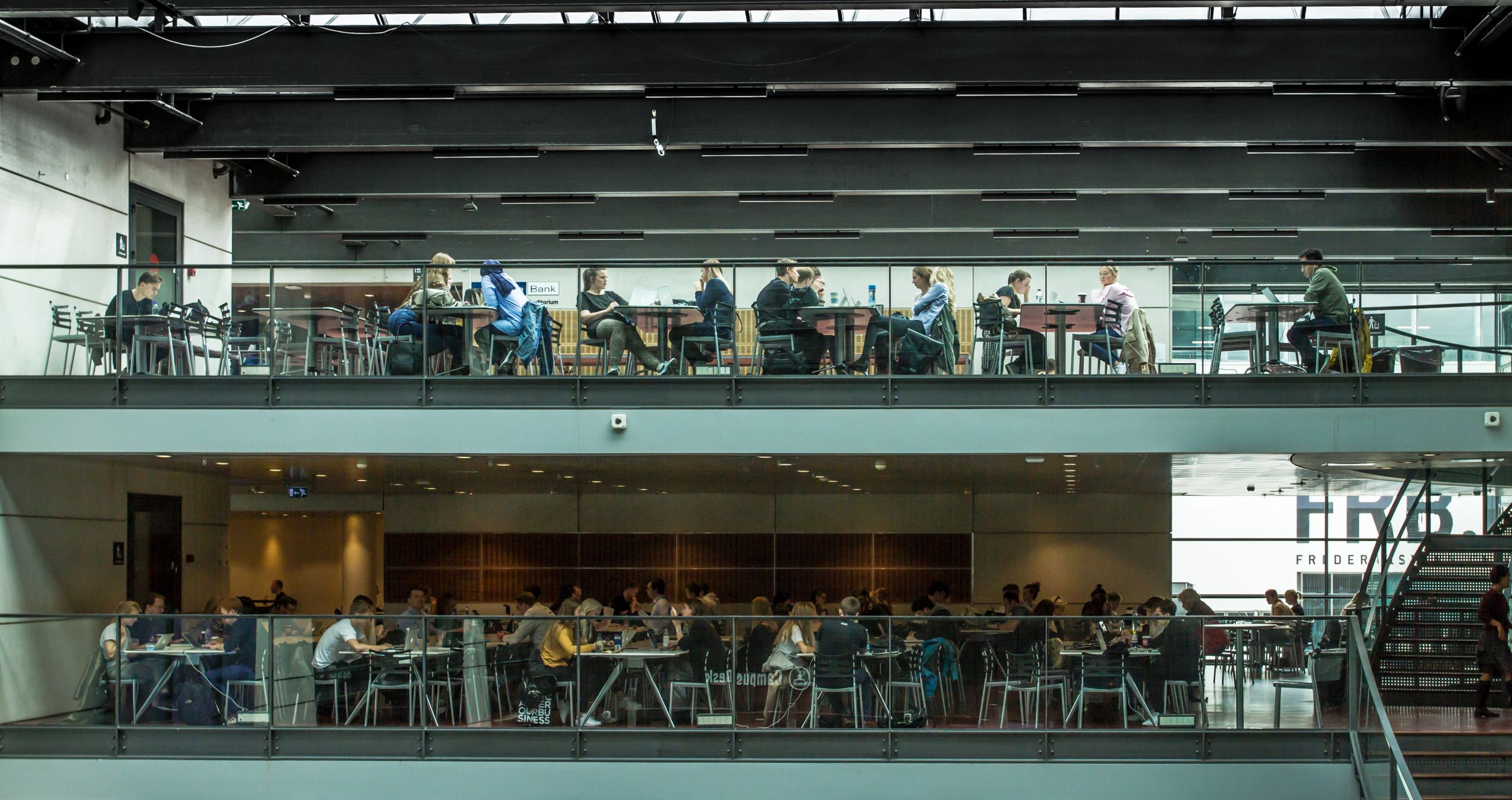
(Photo: Anna Holte)
Senior Management, foreseeing that the regionalization proposal will impact on CBS if approved, has convened a Teams Hall meeting. CBS Students is worried about the consequences it can have on the student environment and quality of teaching.
A new initiative from the Danish government aims at giving more students access to higher education outside the largest cities in Denmark. In the regionalization proposal, the government suggests establishing 25 new educations, including a maritime program in Frederikshavn and a law degree in Esbjerg.
The government also wants to gradually reduce intakes at universities in Copenhagen, Aalborg, Odense and Aarhus by 10% starting from 2022/23. The universities affected can also choose to relocate study places. In total, the government aims to create 7,500 study places outside the big cities.
An email from the Senior Management sent to all CBS employees on Friday May 28 states that everyone will be invited to a Teams Town Hall meeting “to discuss the implications of the government proposal for CBS”, as they “foresee an impact on CBS from the regionalization proposal”.
The President of CBS Students, Mads Taudal Nyeng, expresses his concern about the proposal.
“CBS Students does not support relocating study places and programs. We have a hard time seeing how it should work out, and there is a major risk that it will do more harm than good,” he says and elaborates:
“If you cut back 10% of the study places, the financial consequences will spread like ripples. It will affect recruitment of teachers and researchers and thereby the quality of education, and decrease the funds for improving the student environment.”
Mads Taudal Nyeng is not the only one who is skeptical of the regionalization proposal.
In April, President of CBS Nikolaj Malchow-Møller and Tobias Høygaard Lindeberg, the Head of Development at the think tank DEA, expressed their concerns about spreading higher education programs and campuses across Denmark.
“It will be too expensive and with the risk of inadequate quality if we, for example, have to have more, but smaller university campuses or programs spread around in the landscape,” they wrote in an opinion piece to the Danish news media Altinget.
We stand together
After the initiative was presented on May 27, various organizations, including The Confederation of Danish Industry (Dansk Industry), The National Union of Students in Denmark (DSF), The Danish Confederation of Professional Associations (Akademikerne) and presidents from other Danish universities aired their critiques.
For example, Anders Bjarklev, the President of the Technical University of Denmark and Chairman of the Danish Rectors’ Conference, Rektorkollegiet, states in a press release from Universities Denmark that he welcomes the intention behind the proposal, but is worried about the suggested solution.
“It is worrying that the proposal has set the stage for limiting young people’s opportunities for educating themselves and choosing for themselves where they want to live. There is no evidence that we can move where the students want to study from big cities to smaller cities. It is important that we do not cut down functioning education programs in Denmark,” he says.
Vi står sammen. Det her er ikke en god idé. Det er symbolpolitik, der forringer de studerendes muligheder og universiteternes uddannelser #uddpol #dkpol #dkforsk https://t.co/Ygl7DTY0gs
— Anders O. Bjarklev (@ABjarklevDTU) May 27, 2021
Moreover, Universities Denmark fears that the dimensioning of study places will impact on areas where the demand for graduates exceeds the student intake.
“Creating balance in Denmark through education is tough – and the government is proposing a major change. That’s why we believe it is important to ensure a smart solution through dialogue with those offering the education programs. We look forward to engaging in a constructive dialogue,” says Anders Bjarklev.
Building bridges
Mads Taudal Nyeng believes the government should focus on improving the existing offers for higher educations and together find a different solution.
“I acknowledge the government’s wish to make higher education more available to students across the country. The proposal comes from a good place and it’s positive, but the solution is not right, and you have to consider the risks carefully. I believe we can find an alternative together,” he says.
In general, he finds it unacceptable that the government has not reached out to relevant actors before proposing an initiative that could potential greatly affect the universities.
“They could have reached out to DSF on the matter at the outset. This initiative has been devised without the involvement of any relevant actors. You have to involve the people who work with this, such as the presidents of the universities, student unions and the like. That would have made much sense to me. But hopefully this process will come now that the initiative has been announced and we can discuss it,” he says.
Previously, CBS has had a satellite campus in Herning, Center for Applied Market Science (CAMS). It was established in 2001 and housed the master’s degree Industrial Marketing and Purchasing (IMP). The center was subsequently closed down.
In the opinion piece published in Altinget, Nikolaj Malchow-Møller and Tobias Høygaard Lindeberg would rather “build bridges” between existing educations and higher education institutions than replace them.
“For example, CBS and Zealand Academy of Technologies and Business are exploring the potential for building bridges between some of our educational programs,” they write and continue:
“The Academy, which has departments in six cities on Zealand, offers the programs ‘Digital Concept Development’ and ‘Web Development’, which could be a steppingstone to a relevant education at CBS, such as ‘Data Science’ or ‘e-business’. The point is that we have solutions where we don’t have to build up or relocate. We just have to create far better infrastructure between the existing”.
They end the piece with a final remark:
“In that way, we can open more doors for taking a higher education regardless of where you live. And we will avoid scattering educational programs and research so far apart that it will negatively affect the quality”.
Mads Taudal Nyeng will follow the current discussion and engage in dialogues with CBS’ President and DSF on how to proceed.
“We must liaise with stakeholders who are of the same opinion and engage in the ongoing debate,” he says.



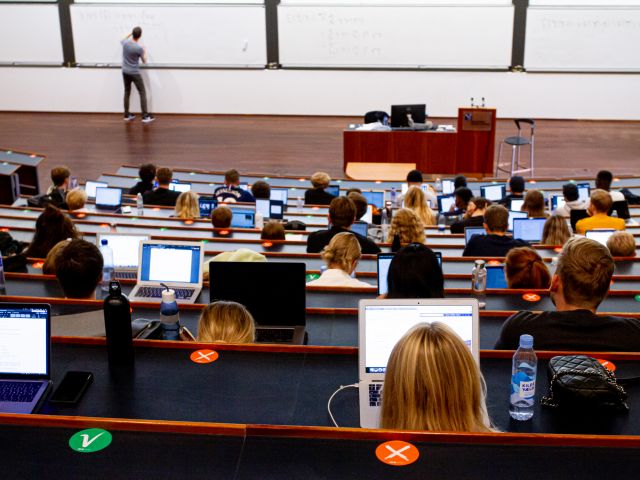


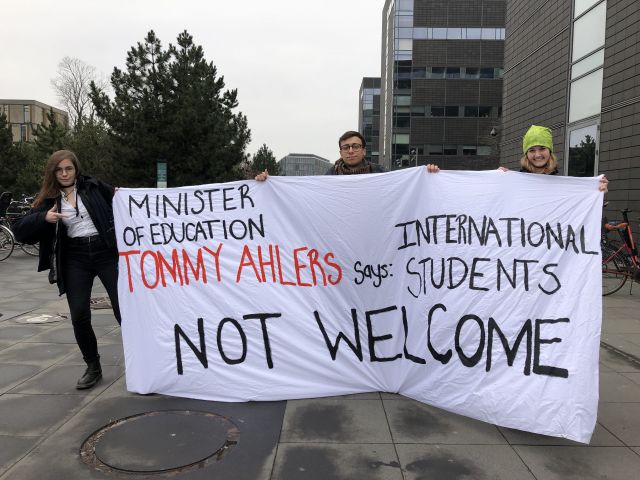
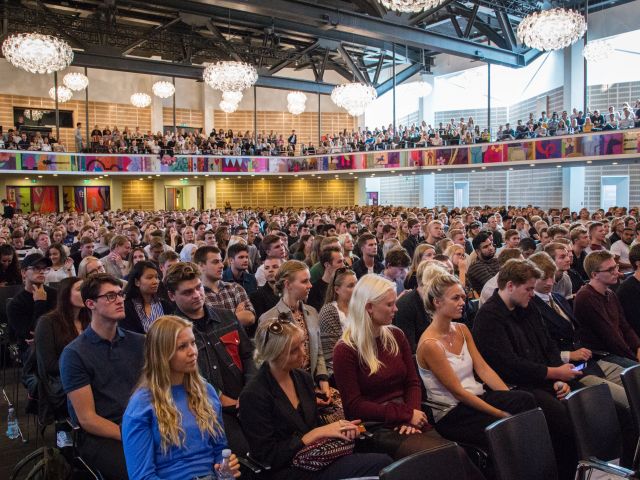
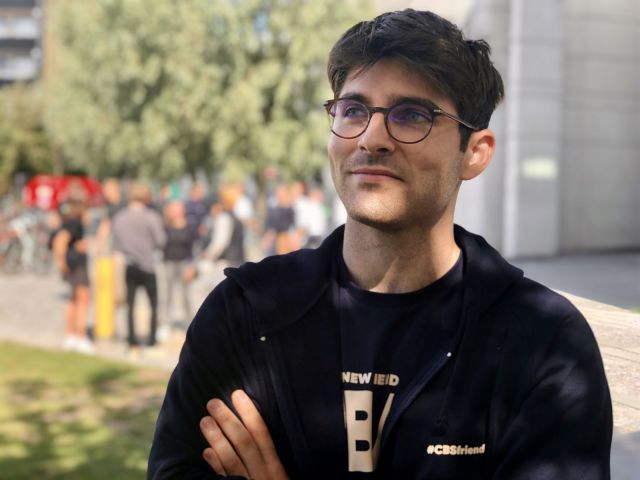





























































































































Comments